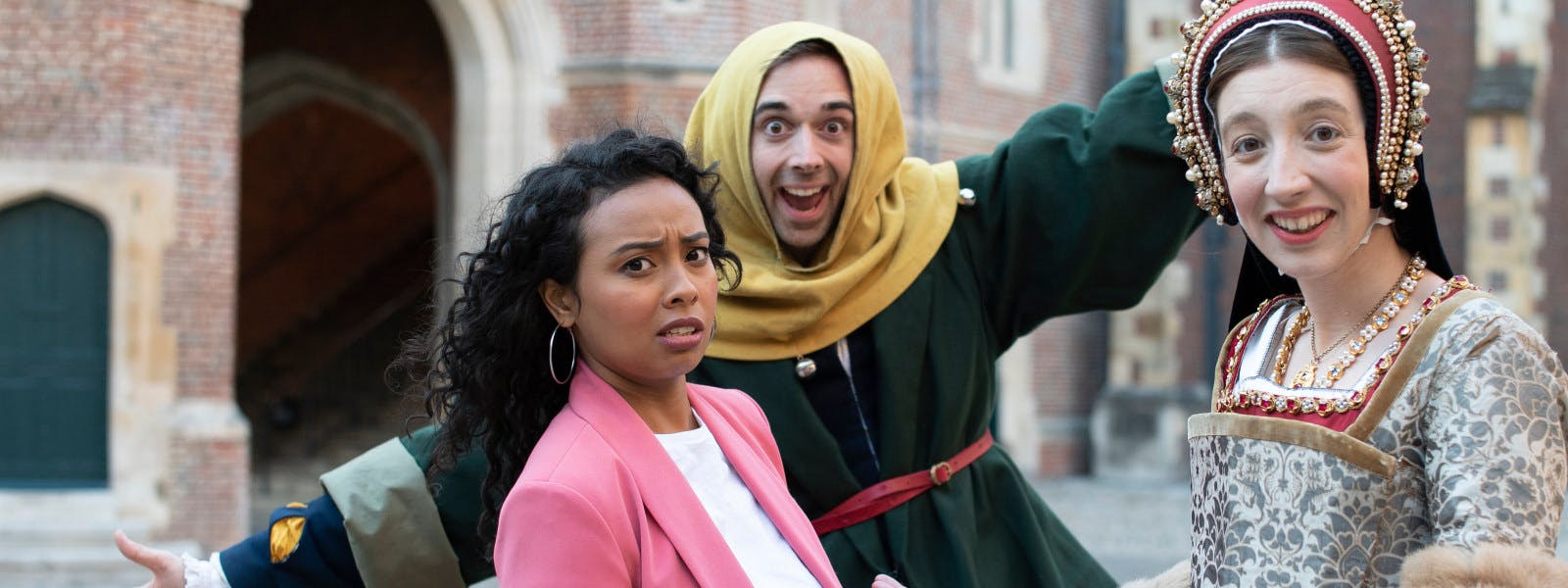
Find a resource to use in the classroom or on a visit to the palaces

This free, editable activity pack introduces children to each queen as a historical figure in her own right - going beyond the familiar rhyme of “divorced, beheaded, died”. It includes fact sheets, colouring, drawing and research activities.

Download an editable Tudor Kings and Queens Family Tree for Key Stage 2, Key Stage 3, Key Stage 4 and Key Stage 5. Use key facts, activities and historic sources to explore King Henry VIII, his queens and his children.

Free biographies of Henry VIII’s six wives designed for older primary and secondary students. This editable resource includes key facts, biographies, sources, timelines, and questions.

In this episode, students learn to spot key Georgian building features such as symmetry, columns and domes. They’ll also discover more about how the ancient Greeks and Romans inspired Georgian builders.

In this episode, students learn to spot key Stuart building features such as stone and brick plus sash windows. They’ll also discover more about the Master Builder Christopher Wren and what happened after the Great Fire of London.

In this episode, students learn to spot key Tudor building features such as timber framing, red Tudor bricks and wattle and daub. They’ll also discover how the Great Fire of London changed the way people built homes.

In this episode, students will discover the key features of a Norman castle including arch shaped windows, crenellations and indoor toilets! They'll also discover what happened in 1066 and why there are so many Norman castles across the UK.

Download short editable biographies of Significant People from Hillsborough Castle and Gardens for Key Stage 2, Key Stage 3, Key Stage 4 and Key Stage 5. Use key facts, activities and historic sources to explore important people linked to Hillsborough Castle and Gardens.

